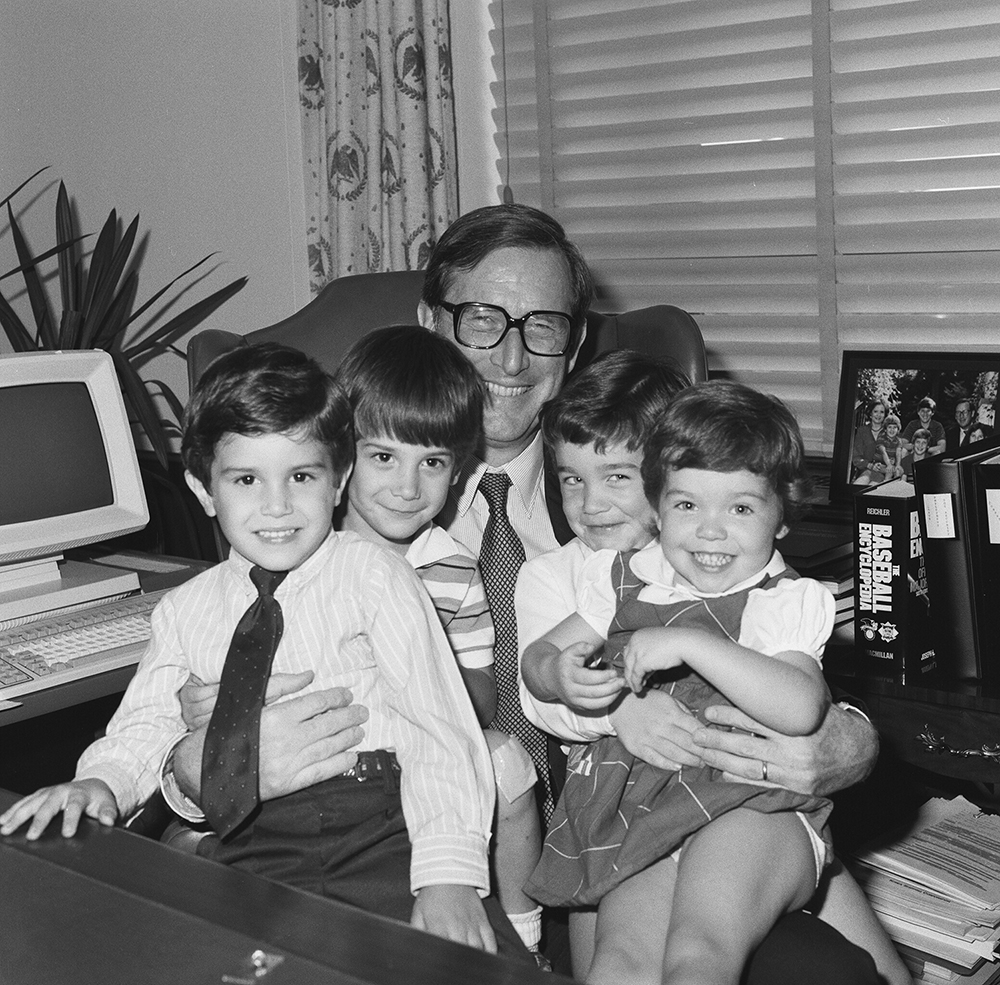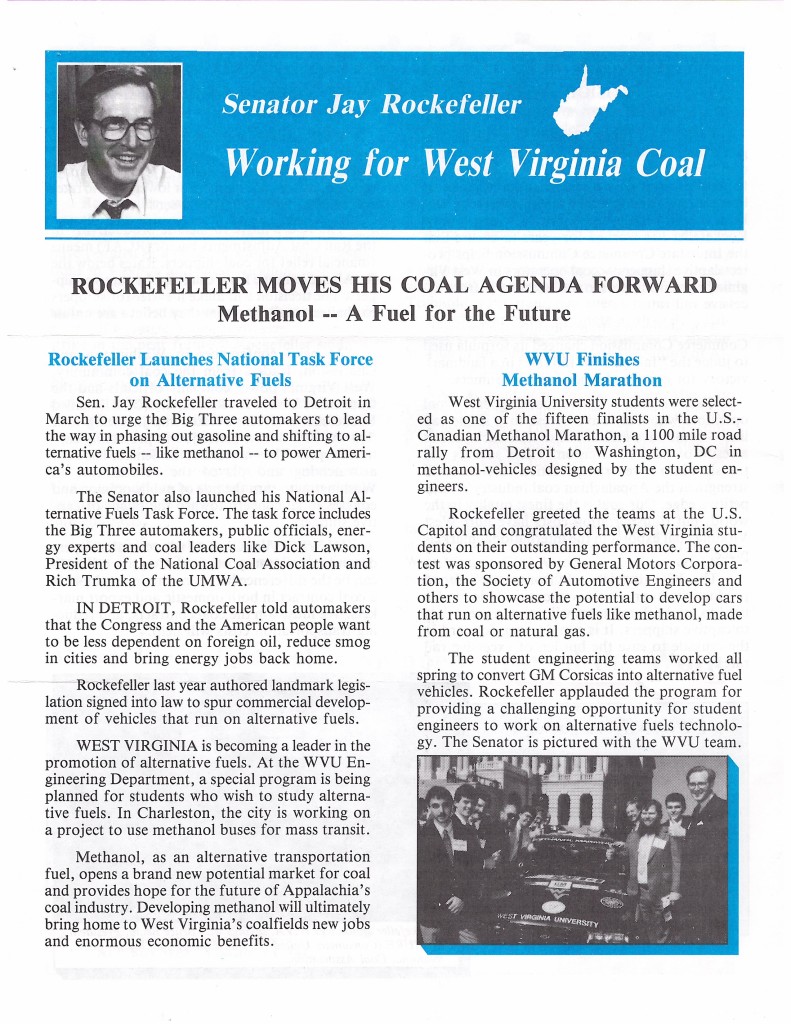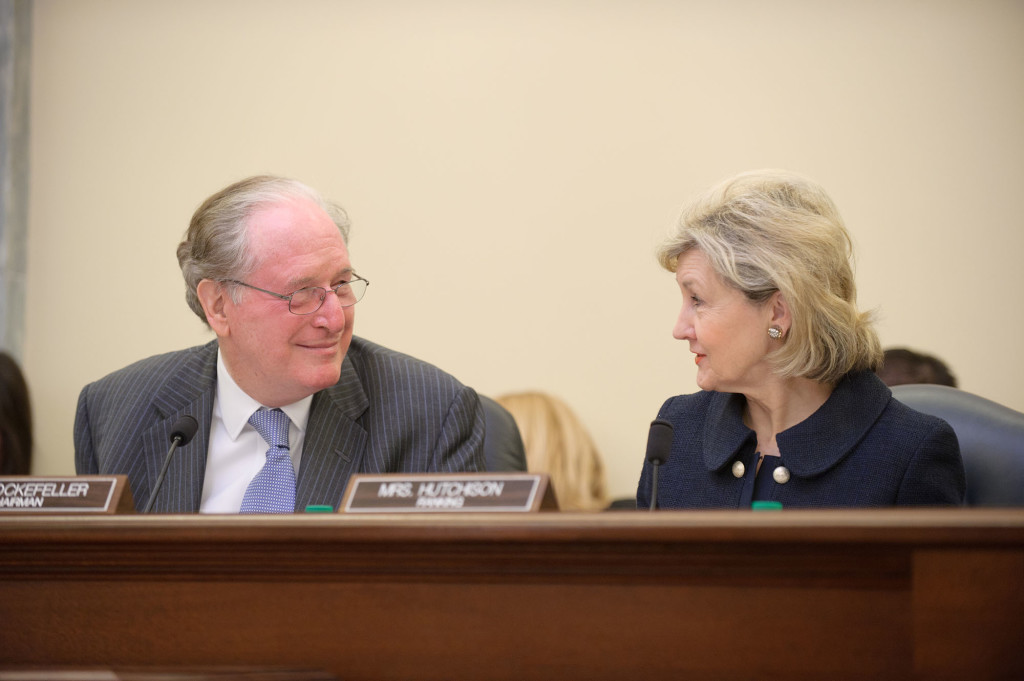Materials from Rockefeller Papers Now Open for Research
Posted by Jane Metters LaBarbara.May 5th, 2016
By Danielle Emerling, Assistant Curator
Thousands of archival records from the Senator John D. (Jay) Rockefeller IV papers are now open for research at the West Virginia & Regional History Center. Materials can be accessed in the Center’s reading room on the 6th floor of the WVU Downtown Campus Library.
Materials available for research come primarily from the press files of the collection and include speeches and statements, press releases, and newspaper clippings ranging in date from 1983-2014. Numerous photographs document Senator Rockefeller at various events, committee hearings, and meetings with West Virginians in his Washington, D.C., office. Photographs capture moments from Rockefeller’s early years, his service in Emmons and in West Virginia politics, and his tenure in the United States Senate.

Senator Rockefeller poses in his Washington, D.C., office with children from the Senate Day Care Center in 1986. Rockefeller was recognized as a champion for children and families and chaired the National Commission on Children, 1989-1993. Photo credit: Senate Photographic Studio
Also included are extensive audio and video recordings of Rockefeller’s speeches; media interviews; and appearances at forums, town hall meetings, and other events throughout West Virginia and the nation. Researchers also have access to Rockefeller’s archived congressional website and Facebook, Twitter, and YouTube pages.
These materials provide valuable insights into Senator Rockefeller’s 30 years in the U.S. Senate and the issues he championed, such as health care reform, Medicare, and Medicaid; West Virginia’s energy industries, economy, and environment; and veterans’ health. Other issues areas include the intelligence community, commerce and trade, and telecommunications.
A full description of the Senator John D. (Jay) Rockefeller IV papers is available in the collection guide. Materials are not available online, and researchers should make an appointment with the West Virginia & Regional History Center to access the collection.

In this 1988 newsletter, Senator Rockefeller’s work on alternative motor fuels is featured. The Rockefeller papers include numerous press releases and newsletters highlighting Rockefeller’s work 1985-2014.
Senator Rockefeller donated his papers to the Center in 2014. The collection is one of the largest in the Center’s holdings at more than 2,011 boxes of records and two terabytes of digital materials, and it continues to be processed.
Rockefeller came to West Virginia in 1964 as a VISTA volunteer in the small community of Emmons, an experience that shaped his extensive career in public service. He served in the West Virginia House of Delegates (1966-1968); as Secretary of State of West Virginia (1968-1972); President of West Virginia Wesleyan College (1973-1976); and Governor of West Virginia (1977-1985). In 1984 he was elected to the U.S. Senate.

Senator Rockefeller, serving as Chairman of the Committee on Commerce, speaks with Ranking Member Kay Bailey Hutchison (R-TX) during a 2011 committee hearing related to the Public Safety Spectrum Act. Rockefeller introduced the Act to create a nationwide wireless broadband network for the nation’s first responders. Photo credit: Rebecca Hammel, U.S. Senate Photographic Studio
During his long career in the Senate (1985-2015), Rockefeller became known as a leader for health care reform; an advocate for improving the lives of children and working families; and a supporter of the nation’s soldiers, veterans, and senior citizens. He served as chair of the Committee on Veterans Affairs; the Select Committee on Intelligence; the Committee on Commerce, Science, and Transportation; and the Committee on Finance Subcommittee on Medicare and Long-term Care. He also served as vice-chair of the Select Committee on Intelligence (2003-2006).
He held additional leadership positions as chairman on the Pepper Commission (1987-1990), the U.S. Senate Steel Caucus, the National Commission on Children (1989-1993), and the Democratic Technology and Communications Committee.





